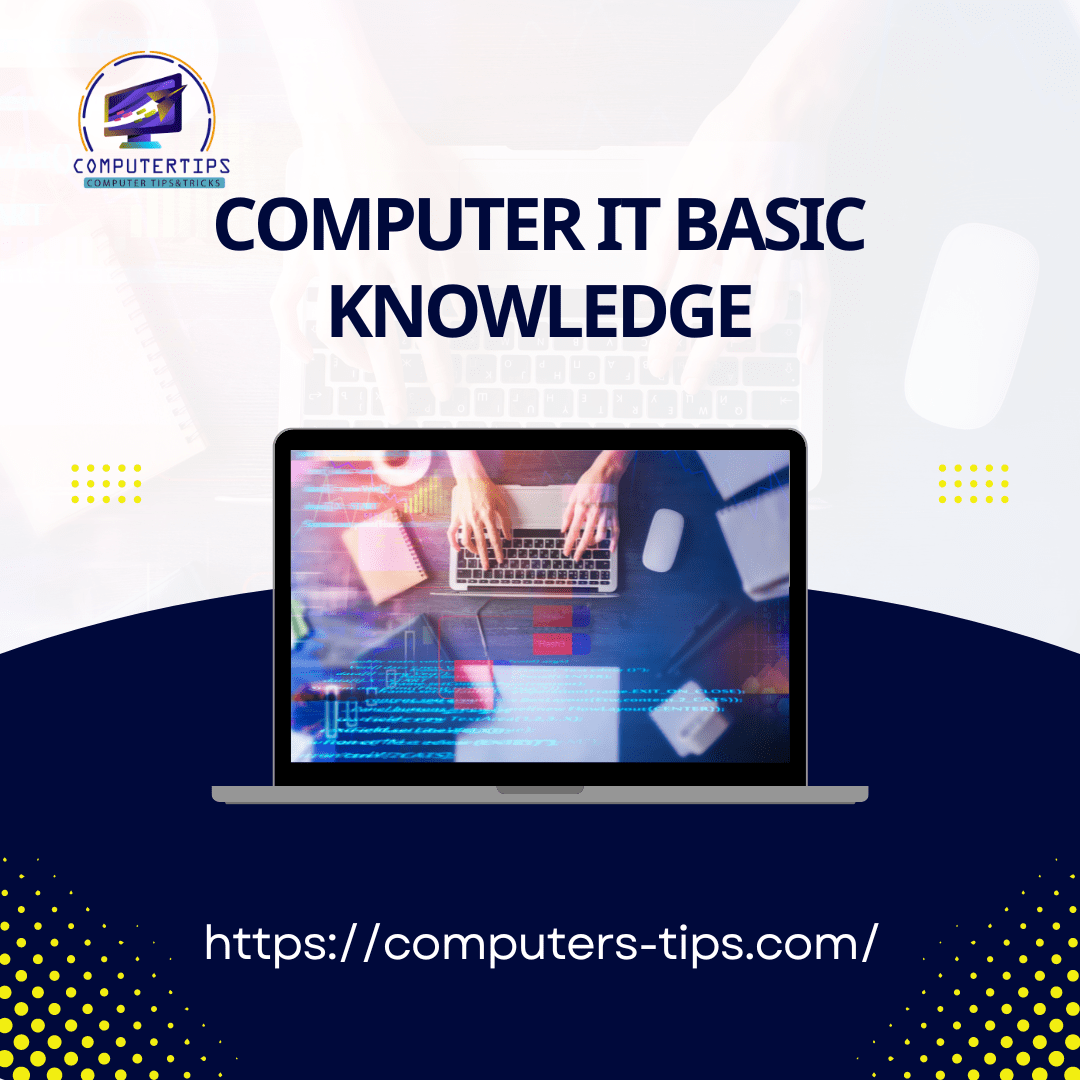Computer IT Basic Knowledge: Navigating the Digital Landscape
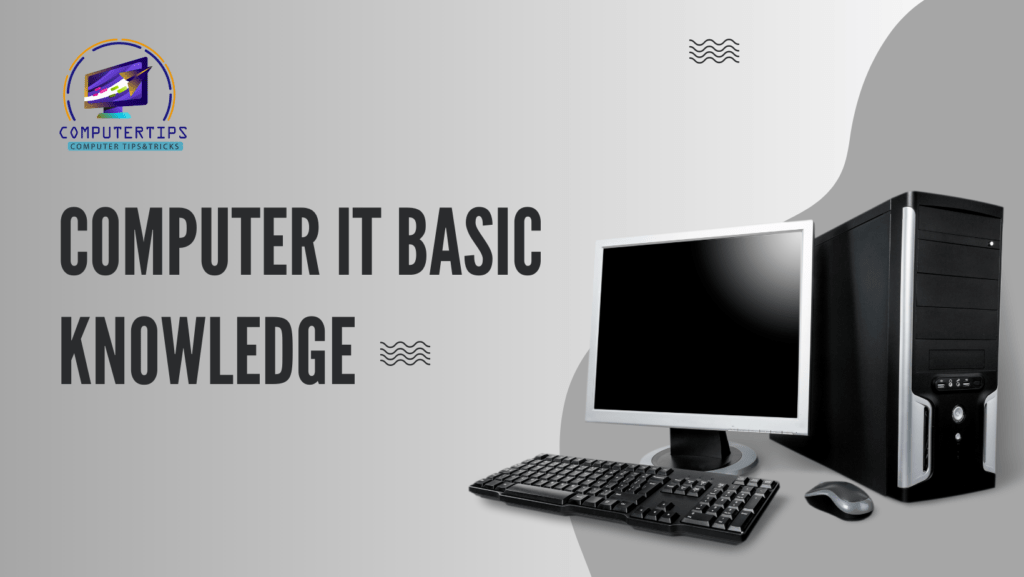
Computer IT Basic Knowledge This comprehensive guide explores the fundamental aspects of computer IT knowledge.
Introduction Computer IT Basic Knowledge
In today’s rapidly evolving digital world, having a grasp of computer IT basic knowledge is not just an advantage but a necessity. Whether you’re a tech enthusiast, a business professional, or simply curious about how computers and technology work, this guide will provide valuable insights into information technology’s foundational aspects.
Computer IT Basic Knowledge: A Primer
When diving into basic computer IT knowledge, starting with the fundamentals is essential. Let’s explore the key components that form the backbone of this field:
Hardware and Software: The Dynamic Duo
Hardware and software are the building blocks of any computer system. Hardware refers to tangible components, such as the central processing unit (CPU), memory, storage devices, and input/output peripherals. On the other hand, software encompasses the programs, applications, and operating systems that enable these hardware components to function harmoniously.
Operating Systems Unveiled
An operating system (OS) is the software that manages computer hardware and provides a user interface. Common examples include Windows, macOS, and Linux. The OS facilitates communication between software and hardware, allowing users to interact with their computers seamlessly.
Networking Essentials
Understanding computer networking is crucial in the digital age. Networking involves the connection of multiple devices to enable data sharing and communication. Concepts such as IP addresses, routers, switches, and protocols significantly establish efficient and secure networks.
Data Management and Storage
Data is the lifeblood of the digital world. Exploring data management and storage concepts, including databases, file systems, and data backup strategies, ensures that critical information remains organized, accessible, and protected.
Cybersecurity: Safeguarding Digital Assets
In an era of increased online threats, cybersecurity is of paramount importance. Learn about encryption, firewalls, antivirus software, and best practices to defend against cyberattacks and ensure the integrity of personal and sensitive data.
Cloud Computing: The Future of IT
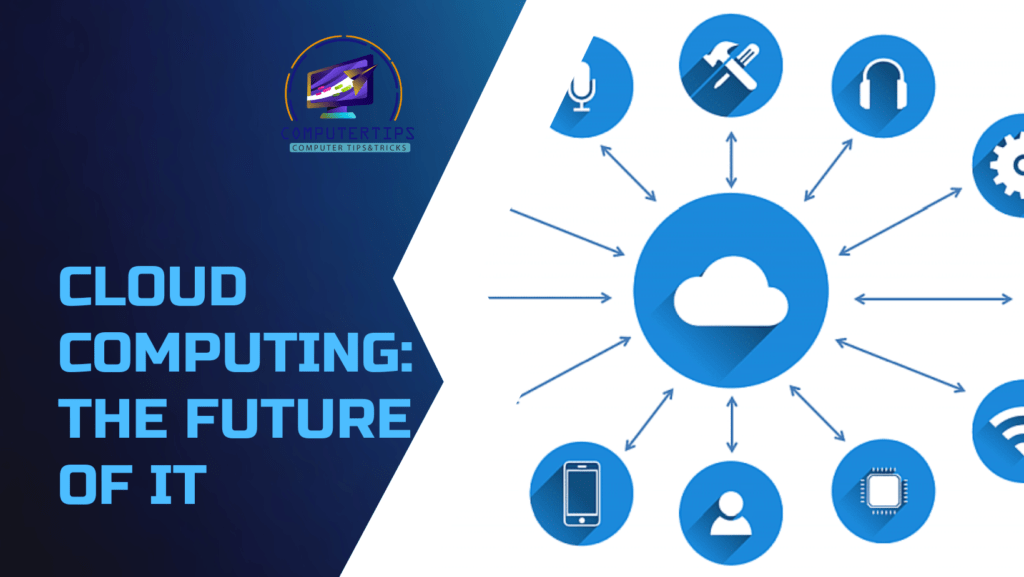
Cloud computing has revolutionized the way we store and access data. Delve into cloud service models, deployment options, and the advantages of utilizing remote servers to streamline processes and enhance collaboration.
Programming Fundamentals
Programming forms the basis of software development. Discover programming languages like Python, Java, and C++, and grasp essential coding concepts to create applications and automate tasks.
Troubleshooting and Problem Solving
Computer-related issues are inevitable. Developing practical troubleshooting skills empowers you to identify and resolve technical challenges efficiently. Learn to diagnose hardware and software problems to keep your systems running smoothly.
Exploring IT Practical Applications
Computer IT basic knowledge isn’t confined to theoretical concepts; it extends to practical applications that impact our daily lives and various industries. Let’s explore some of these real-world applications:
E-Commerce and Online Transactions
The world of online shopping and financial transactions relies on secure IT infrastructures. Discover how encryption and secure payment gateways facilitate safe e-commerce transactions.
Telecommunications and Connectivity
From mobile devices to video conferencing tools, telecommunications rely on IT networks. Learn about the technologies that enable seamless communication across the globe.
Healthcare and Medical Technology
Electronic health records, medical imaging, and diagnostic tools have transformed healthcare. Explore how IT advancements enhance patient care and medical research.
Business Management Systems
Efficient business operations depend on IT systems. Uncover how enterprise resource planning (ERP) and customer relationship management (CRM) software optimize business processes.
Entertainment and Digital Media
IT solutions power streaming services, online gaming, and social media platforms. Understand the role of servers, content delivery networks (CDNs), and data analytics in the entertainment industry.
Navigating the IT Landscape with Confidence
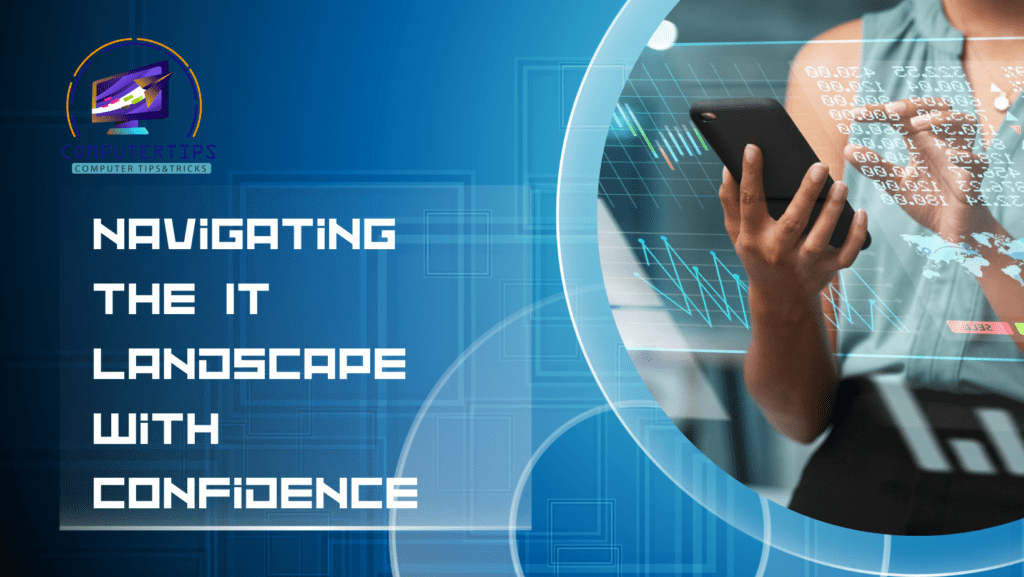
As technology continues to shape every aspect of our lives, having a solid understanding of computer IT basic knowledge is akin to possessing a compass in an ever-changing landscape. Let’s delve deeper into some of the key areas that define this landscape:
Mobile Technology and App Development
Smartphones and mobile apps have become integral parts of modern living. Learn how mobile technology functions and explore the app development world, from coding to user experience design.
Internet of Things (IoT) Revolution
The Internet of Things connects everyday devices to the Internet, enabling data exchange and automation. Delve into how IoT transforms industries, from smart homes to industrial automation.
Virtual Reality (VR) and Augmented Reality (AR)
Immerse yourself in VR and AR, where computer-generated environments and elements merge with the real world. Discover their applications in gaming, education, training, and more.
Data Analytics and Big Data
The ability to analyze vast amounts of data opens doors to valuable insights. Explore data analytics tools and methodologies, and understand how big data drives decision-making in various sectors.
Artificial Intelligence and Machine Learning
AI and machine learning are revolutionizing industries by enabling computers to learn from data and make intelligent decisions. Uncover the potential of AI in areas like healthcare, finance, and autonomous vehicles.
Future Trends and Innovations
Explore emerging technologies like quantum computing, 5G, and blockchain. Understand their implications for various sectors and their potential to reshape industries.
Embracing the Future with Confidence
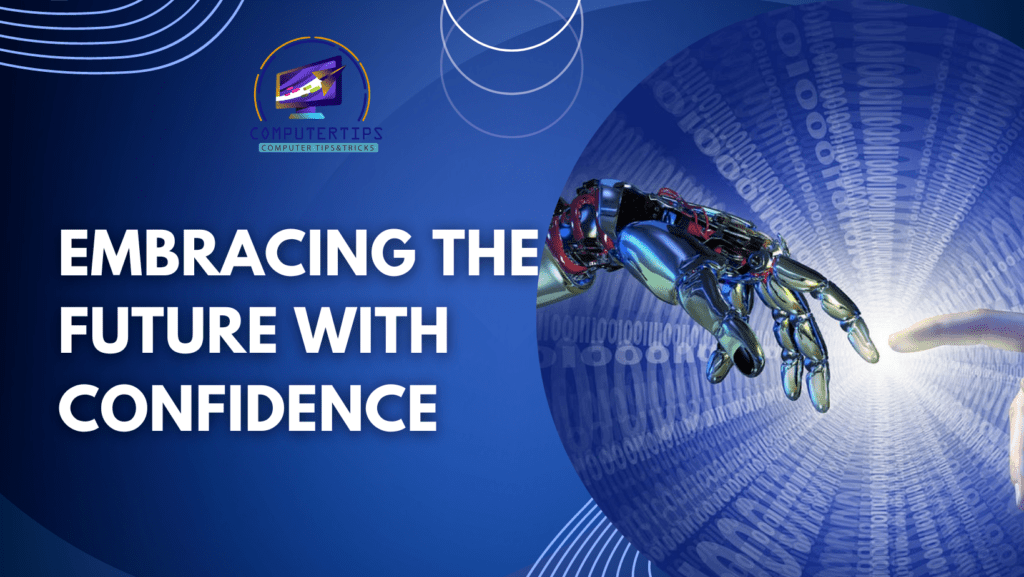
As we bid adieu to this essential computer IT knowledge exploration, remember that your newfound insights are a stepping stone to a world of possibilities. The digital realm is dynamic and ever-evolving, offering opportunities for personal growth, professional success, and innovative contributions. Armed with these fundamentals, you can adapt and thrive in a technology-driven future.
FAQs
What is the role of a CPU in a computer?
The Central Processing Unit (CPU) is often referred to as the “brain” of a computer. It executes instructions, performs calculations, and coordinates data processing tasks.
How does cloud computing benefit businesses?
Cloud computing offers businesses scalability, cost-efficiency, and flexibility. It enables them to access resources and services remotely, reducing the need for physical infrastructure.
Why is cybersecurity essential for individuals?
Cybersecurity protects individuals from cyber threats, including identity theft, data breaches, and malware attacks. Safeguarding personal information is crucial in the digital age.
Can I learn programming without a background in IT?
Absolutely! Many programming languages cater to beginners. Starting with user-friendly languages like Python can help you build a strong foundation in programming.
What’s the difference between hardware and software?
Hardware refers to physical components, while software encompasses programs and applications. Hardware includes devices like CPUs and hard drives, while software includes operating systems and applications.
How do I troubleshoot a slow computer?
A slow computer can result from various factors, such as insufficient memory or malware. You can troubleshoot by closing unnecessary programs, running a malware scan, and upgrading hardware.
Conclusion
In a world driven by technology, acquiring basic computer IT knowledge empowers individuals to navigate the digital landscape confidently. From understanding hardware and software to exploring practical applications, this guide has provided insights into essential concepts.
